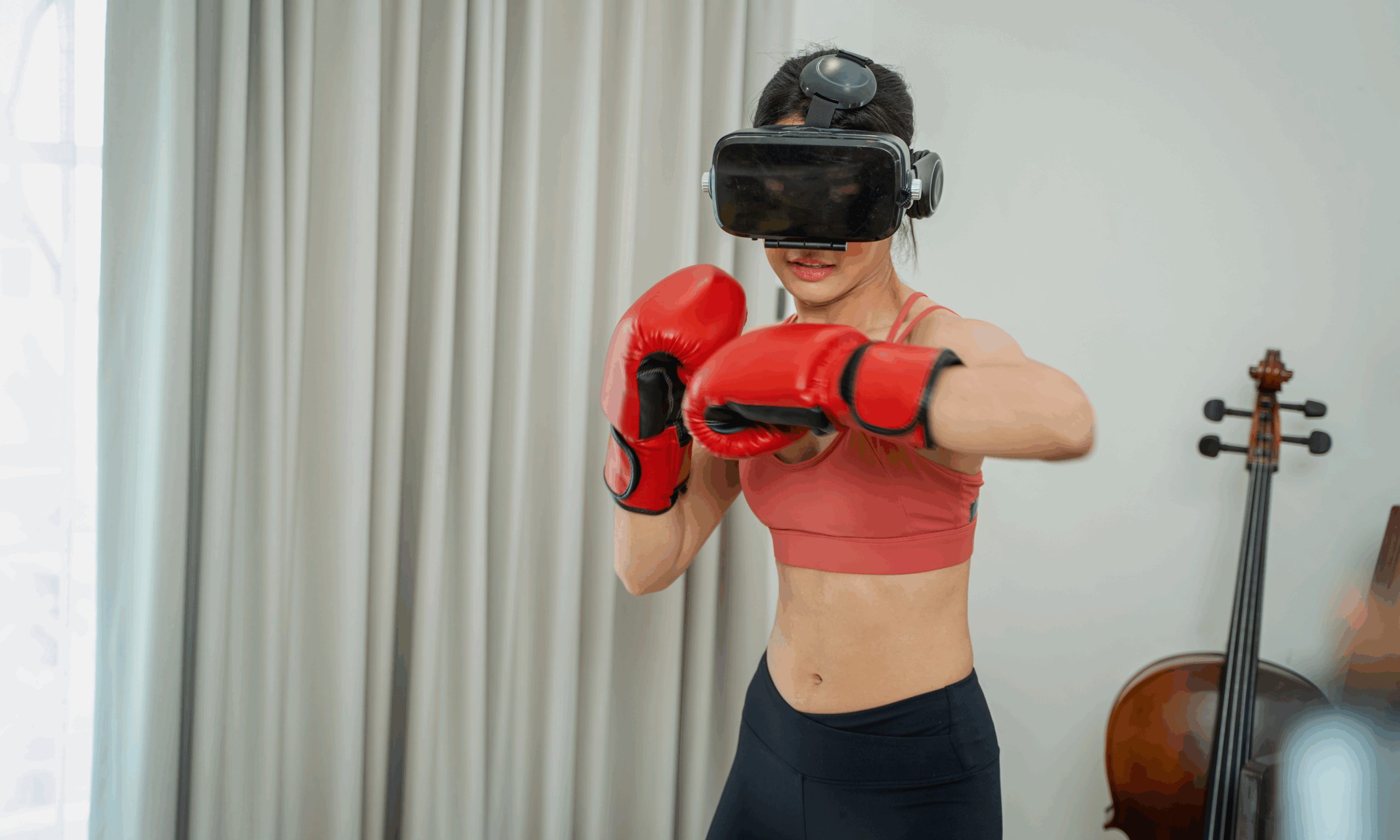
For years, esports and traditional sports seemed like two different worlds. One was fast-paced, digital, and built on gaming. The other was physical, rooted in stadiums and fields. But today, those worlds are starting to merge. Welcome to the rise of phygital sports, a blend of physical and digital activity that is not only changing how people play but also shaping exciting new careers.
At first, it might sound like just another buzzword. But behind “phygital” lies a serious shift in technology, creativity, and opportunity. Students, early career seekers, educators, parents, and even seasoned professionals are beginning to notice that this hybrid space is full of possibility. Careers are being built at the intersection of gaming, sports science, event design, and technology. And it’s moving faster than most people expect.
This article explores what phygital sports are, why they matter, and how they are creating career opportunities for the next generation.
What Exactly Are Phygital Sports?
Phygital sports combine the immersive world of esports with the movement and physical engagement of traditional sports. Imagine a basketball game where you wear a headset that tracks your body’s movement and projects it into a virtual arena. Or a football match where your physical performance is instantly measured, analyzed, and turned into a digital competition.
Unlike purely digital esports, phygital sports encourage players to use both their minds and their bodies. They merge fitness with technology, strategy with creativity. It’s not just about pressing buttons on a controller, it’s about blending gameplay with real-world activity.
A Few Examples:
-
Drone Racing – Pilots control drones in real life, but the races feel like a video game, complete with virtual overlays.
-
VR Fitness Games – Platforms like Beat Saber or Supernatural mix physical movement with gaming mechanics.
-
Smart Arenas – Stadiums equipped with sensors and screens that let players’ movements translate directly into digital competition.
-
Hybrid Tournaments – Leagues where players switch between esports competitions and physical sports challenges.
This new approach makes competition more engaging, but it also creates a playground for careers that didn’t exist just a decade ago.
Why Phygital Sports Matter
Phygital sports aren’t just entertainment, they represent a bigger trend. Technology is reshaping industries, and the workforce must evolve with it. For young people exploring their future, phygital sports serve as a gateway into careers in tech, design, education, sports science, and beyond.
Three key reasons why they matter:
1. Health Meets Gaming – For years, critics argued that esports lacked physical activity. Phygital sports address this by encouraging movement and healthier lifestyles while keeping the excitement of gaming alive.
2. Career Diversity – From software developers and sports scientists to event managers and content creators, this space demands a wide range of skills.
3. Future-Proof Learning – Educators can integrate phygital sports into curriculum, teaching students about teamwork, digital literacy, biomechanics, and innovation, all in one.
Career Opportunities in Phygital Sports
Here’s where it gets exciting: the career possibilities are wide open.
1. Game and Technology Development
Every phygital sport needs the right tech to make it work. This means opportunities for software developers, hardware engineers, and UX designers who can build platforms that merge the digital and the physical.
2. Sports Science and Fitness Innovation
With physical movement at its core, phygital sports rely on biomechanics, performance analytics, and health insights. Careers in sports science, physiotherapy, and fitness technology are becoming central to this industry.
3. Event Design and Management
Phygital competitions often happen in hybrid spaces part arena, part digital stream. This requires event planners, production crews, and broadcast teams who understand both esports and live sports entertainment.
4. Content Creation and Media
As with esports, phygital sports thrive on community engagement. Streamers, videographers, journalists, and social media managers play a big role in making these events visible and exciting.
5. Education and Coaching
Teachers, trainers, and career guides can help students understand how phygital sports fit into learning and job preparation. Phygital coaches may soon become as common as esports coaches are today.
6. Entrepreneurship
New markets mean new business opportunities. Startups are already experimenting with VR gyms, AI-driven sports analytics, and phygital leagues. For young entrepreneurs, this is an open field.
For Students: Turning Passion into a Pathway
If you’re a student who loves gaming but also wants to stay active, phygital sports could be your sweet spot. It’s not just about playing, it’s about building skills employers will value.
Actionable Tips for Students:
-
Experiment with Tools – Try VR headsets, fitness apps, or motion-based games to see how digital and physical merge.
-
Build Transferable Skills – Coding, design, video editing, or event organizing, skills learned in phygital spaces can apply across industries.
-
Network Early – Join esports clubs, local gaming meetups, or sports tech communities. The earlier you connect, the more opportunities you’ll find.
For Educators: Preparing the Next Generation
Educators are in a unique position. By introducing phygital concepts into classrooms, they can prepare students for future careers while keeping lessons engaging.
Actionable Tips for Educators:
-
Use Phygital Sports in Curriculum – Incorporate VR-based fitness or esports strategy games into PE and digital literacy programs.
-
Teach Interdisciplinary Skills – Show how coding, design, biology, and teamwork all intersect in this field.
-
Partner with Industry – Collaborate with local tech companies, esports teams, or startups to expose students to real-world applications.
For Parents: Supporting Future-Ready Careers
Parents often worry about kids spending too much time gaming. But phygital sports offer a healthier, more balanced alternative. They prove that gaming can be active, educational, and even career-focused.
Actionable Tips for Parents:
-
Encourage Healthy Balance – Support your child’s interest in gaming while also promoting physical activity through phygital experiences.
-
Stay Informed – Learn about esports and phygital sports so you can guide your child with confidence.
-
Focus on Skills, Not Just Screens – Recognize that digital literacy, teamwork, and creativity are valuable job skills, even when developed through games.
For Career Changers and Young Professionals: Finding Your Edge
Phygital sports are not just for students. If you’re looking to pivot into a new career, this field offers fresh opportunities where traditional experience isn’t always required.
Actionable Tips for Professionals:
-
Upskill in Digital Tech – Online courses in coding, VR, or sports analytics can help you transition into this growing space.
-
Leverage Transferable Skills – Experience in project management, teaching, or design can easily apply to phygital industries.
-
Stay Open to Hybrid Roles – Many new jobs won’t fit traditional titles, be ready to adapt and innovate.
Challenges and Questions Ahead
Of course, no new industry is without challenges. Phygital sports raise important questions:
-
Accessibility – Will equipment like VR headsets and motion sensors be affordable for all communities?
-
Health and Safety – How do we ensure safe play when blending physical activity with digital immersion?
-
Recognition – Will schools, employers, and policymakers recognize phygital sports as a legitimate career path?
These are challenges worth tackling, and they also open doors for innovators to create solutions.
The Bigger Picture: Phygital Sports and the Future of Work
Phygital sports are part of a much larger trend, the blending of digital and physical in work, learning, and play. Just as remote work changed offices and AI is reshaping industries, phygital sports are reimagining how we view sports, entertainment, and careers.
For Nexgen Careers, this is more than a trend, it’s a signal. It shows that young people need guidance not just in traditional fields but also in spaces that are still forming. By exploring phygital sports today, students, educators, parents, and professionals are preparing for the jobs of tomorrow.
A Call to Explore
The rise of phygital sports proves one thing: careers no longer fit into neat categories. They’re hybrid, dynamic, and powered by creativity and technology. For students, this means the chance to turn passion into profession. For educators and parents, it’s an opportunity to support new pathways. And for professionals, it’s a reminder that innovation creates fresh starts.
The next time someone says gaming is “just a hobby,” think again. Esports is meeting reality, and together they’re building the future of work.
